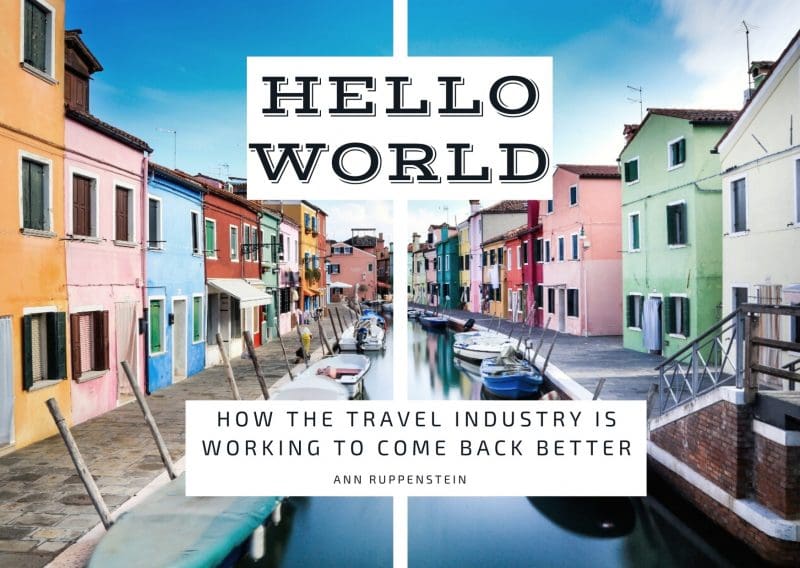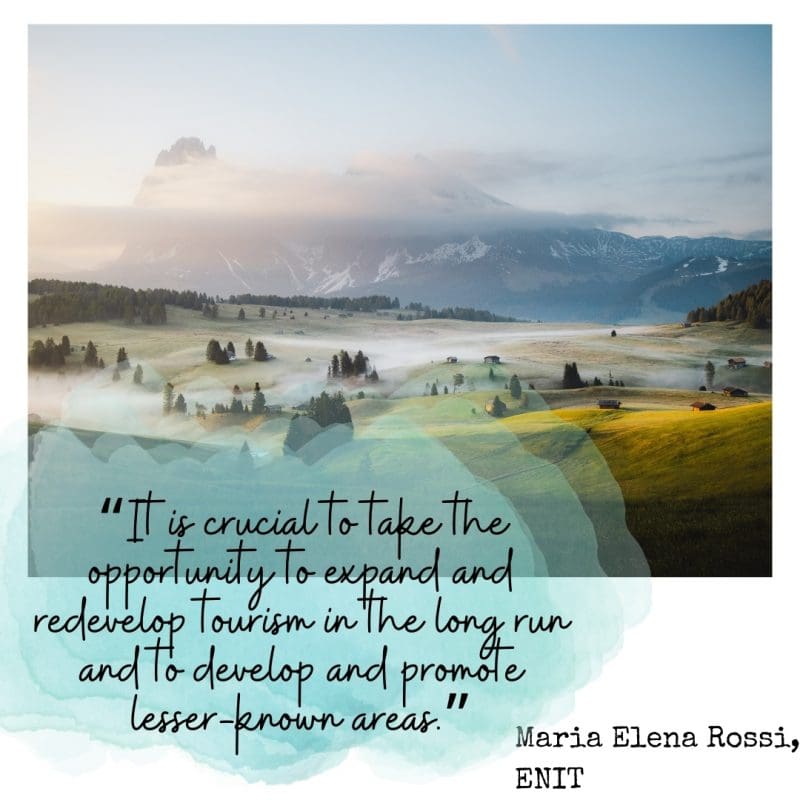
It may be difficult to recall after months of being cooped up at home, but there was a time prior to the pandemic when destinations around the world were battling overtourism. A time out from mass travel has given many the ability to reflect on how to come back better and more sustainably — and some were doing it all along.
At a time when there’s a fine balance between restoring a healthy amount of tourism and reaching a level where it takes away from the quality of life of locals in places overrun by visitors, Travel Courier looks at what a responsible future looks like for the industry… and how tour operators and destinations are achieving those goals.

An incredible adventure starts locally
Although Intrepid Travel has long been involved in responsible tourism, senior product manager Erica Kritikides says the small group adventure travel company is keen to get businesses across the tourism industry to look at ways to rebuild responsibly.
“It’s hard to believe given present circumstances, but just prior to the onset of COVID, overtourism was one of the biggest contemporary challenges facing the tourism industry, with international tourist arrivals reaching 1.4 billion in 2018 and some significant sites, natural landscapes and popular cities being overwhelmed with visitors,” Kritikides tells Travel Courier. “With international travel having been all but stopped in its tracks, we have a unique opportunity to assess what our industry has not done well in the past and to correct these issues moving forward – whether that be better managing overtourism, ensuring we are mindful to issues of animal welfare and the environment and, perhaps most critically, that we are doing what we can to help our travellers to lower their carbon footprint.”
As the tour operator brings new itineraries to life, she says Intrepid focuses on working with locally-owned businesses to ensure the economic benefits of the trips impact the communities where they travel and operate.
“All our trips are led by local leaders and the majority of our operations teams are local to the destinations where we travel,” she says. “We also actively seek out and promote new and emerging destinations and itinerary routes in popular destinations to ensure the benefits of tourism can stretch beyond the usual suspects.”
Intrepid has also been involved in establishing a number of community-based tourism initiatives.
“This has involved Intrepid partnering with local communities in off-the-beaten-track locations to create accommodation and experience packages for Intrepid customers, which the community then owns, operates and benefits from — both in terms of employment opportunities and a new source of income,” she says. “In addition, where possible, we include purpose-focussed experiences in our trips that support gender equality, wildlife and environmental conservation, and other social enterprises – and the Intrepid Foundation, our not-for-profit, provides our travellers with an avenue to donate funds to support projects in the places we visit.”

Intrepid has also taken practical steps to respond to overtourism, such as visiting major sites at less crowded times or seeking out more off-the-beaten track experiences and places to eat.
“Prior to COVID, at the end of 2019, we even took the more dramatic step of removing some destinations from selected itineraries where we were particularly concerned about the pressures of overtourism. These specific itinerary decisions will obviously be reviewed when regular travel resumes again, but it won’t change Intrepid’s commitment to being the best travel company for the world,” she says. “Intrepid Travel has always had a strong focus on responsible tourism and endeavours to have a positive impact on the places and communities that we visit. It takes a lot of collaboration between our product teams and local offices to ensure we’re doing all we can to support and empower all the places we visit. Whether it’s a tour operator or a travel advisor, I strongly believe it’s our duty to promote lesser-visited regions that will offer customers an incredible adventure.”
Kritikides says the process of finding the balance between bringing travellers to must-see destinations and attractions while spreading visitors to lesser-known areas that don’t typically benefit from tourism comes with experience.
“Ultimately, being able to balance must-see destinations with off-the-beaten track experiences and places requires in-depth local knowledge and extensive local networks. Happily, with in-destination local operating teams around the globe, in-depth local knowledge is something Intrepid has no shortage of,” she says. “While travellers will often choose a destination for its highlights, its these off-the-beaten-track experiences that are often the most difficult thing for a traveller to access by themselves, and so often become the highlight of their trip.”
Kritikides says some customers specifically look for tours in ‘undiscovered’ places — which are offered through Intrepid’s Expedition trips — but the majority of travellers still want to visit iconic destinations – and also want to see the highlights.
“The value Intrepid provides a traveller, as a tour operator with extensive local networks, is not only how to see these iconic places at off-peak times and with a distinctly local lens – but also how we are able to use our local knowledge to introduce travellers to places, people and experiences they may not have heard or read about,” she said.

On Venice and a sustainable future for Italy
Venice made headlines recently when news broke that Italian authorities approved a ban on cruise ships from entering the picturesque city’s historic centre. Maria Elena Rossi, the Global Marketing and Promotion Director for ENIT, the Italian National Tourist Board, tells Travel Courier this shift will have a positive impact for locals and travellers alike.
“The city will experience less crowding and environmental benefits, as well as putting a stop to the ‘eat and run’ tourism, which will be replaced by tourists gaining a deeper knowledge and discovering the real nature of a most unique city in the world,” says Rossi. “It is crucial to take the opportunity to expand and redevelop tourism in the long run and to develop and promote lesser-known areas.”
Prior to the pandemic, she says Italy was a top destination for international travellers with 55 UNESCO World Heritage Sites and memorable cities to explore with rich culture, art and gastronomic offerings.
“The pandemic, through a significant decrease in demand, has shifted the tourists’ preferences towards more natural or historical locations, which were previously less frequented or known,” she says. “We will focus on enhancing the infrastructures for these new or emerging destinations in order to accelerate the consolidation of these places as tourist destinations to be frequented in a medium-long range capacity. Big cities are to be rediscovered in a renewed light by offering increasingly personalized and diversified experiences.”

Looking to the future, she believes trust, responsibility and accountability are key to restoring consumer confidence in travelling again.
“The travel restrictions in place have raised awareness of the crucial role the tourism industry plays in communities, its contribution to the economic development of many countries, as well as the importance of balancing growth with sustainability,” she said. “Multigenerational travellers, smaller groups, more personalized outdoor experiences and a sustainable approach to mobility and travel behaviours are trends that have been accelerated and will be further developed in the coming years.”

















